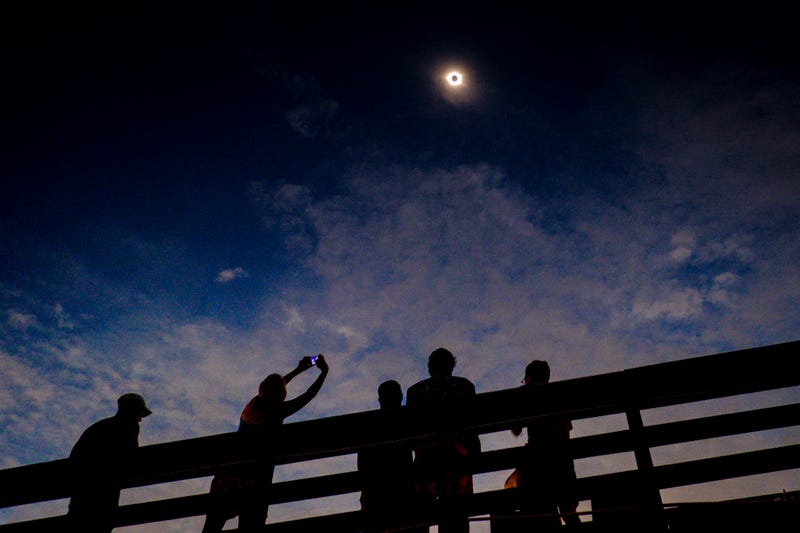
Buffalo, N.Y. (WBEN) - As Buffalo gets ready for the Total Solar Eclipse next month, one eclipse expert says while the whole world won't get to see this one, everyone gets a chance to see a similar one.
Tim Collins of the Buffalo Eclipse Consortium says in this case, not everyone in the world is likely to see it. But everyone in the world does have a chance to see a similar eclipse in their lifetime. Collins says they happen every 18 months. "Unfortunately, most of them are in places no human would ever go, like over water or at the polls, but you stand a good chance of seeing something, even if it's a partial eclipse, you still have a good chance to see one in your lifetime," says Collins.
Collins says there is a pattern in finding solar eclipses, but the pattern is not repeatable. "Solar eclipses occur when the moon reaches a certain point in its orbit with respect to Earth. So when the two match up, the moon doesn't orbit Earth's equator, which is why we don't get them every month," explains Collins. He says the moon orbits at a slight angle about five degrees, that's enough that sometimes the moon passes over the sun at New Moon and sometimes it passes below it at new moon. "So just those once every 18 months, you get that get that shot where it goes directly across the face," notes Collins.
Collins says there is a way to track solar eclipses around the world. "NASA has a great website for mapping out where the paths are, and you can go and look up eclipses. You can see a map of where these eclipses will be, and they give you the date," notes Collins.
The Total Solar Eclipse over Buffalo comes April 8.
